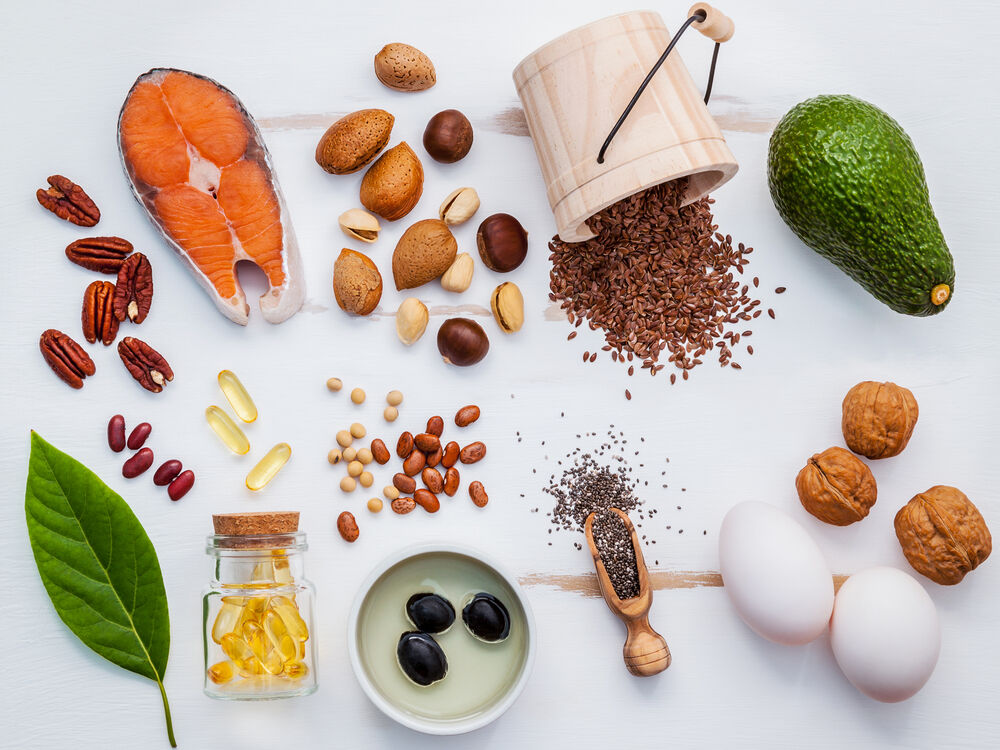
High Carbohydrate Vs High Fat Diet
In the last few years one of the most fiercely debated topics in fitness has been whether High Fat (HF) or High Carbohydrate (CHO) diets are ‘better’ for fat loss. Advocates of HF diets claiming High CHO diets, particularly those high in simple sugars, have led to increased obesity, insulin resistance and diabetes. On the other side High CHO supporters have proposed that HF diets increase Cardiovascular Disease risk, diabetes and cancer risk due to excessive abdominal fat. Extreme, almost cult like devotion, to their chosen side has led to pointless scaremongering and confusion across the board.
The question, however, is valid. Which is better for Fat Loss?
To answer this we need to look at both diets, compare, contrast and come to an informed decision.
High Fat
HF diets have been linked with many health benefits. Lowering bodyweight, total cholesterol levels, blood pressure and Triglyceride (Fat) blood levels. Increasing High Density Lipoproteins (HDL’s) and lowering serum insulin and blood glucose levels, believed to aid in the prevention and control of diabetes. HF diets have, therefore, been shown to improve health markers, reducing the risk of Cardiovascular Disease, Diabetes and Obesity. In terms of body composition HF diets (provided they contain adequate protein >1.6g.kg) are linked to increased Fat Free Mass (FFM), lowered body fat and bodyweight. This occurs in conjunction with exercise. We can, consequently, suggest that HF diets are beneficial for fat loss goals. One thing to bear in mind, is that whilst proponents of high fat diets will claim (truthfully) that HF diets lead to increased Lipolysis (Fat Oxidation), this in reality simply means that you are consuming more fat so will, necessarily, burn more.
So What about High CHO?
Well as it turns out very similarly to HF diets, High CHO diets have a number of health benefits. Linked to lowered bodyweight, total cholesterol, blood pressure and circulating Triglyceride levels. An increase in HDL’s and lowered serum Insulin and blood glucose levels have also been found. High CHO diets have been shown to positively affect health markers and lower Cardiovascular Disease risks.
That Sounds Familiar…..
And the simple answer is that it is. In HEALTHY individuals studies have shown that both HF and High CHO diets are effective and beneficial for fat loss IF a caloric deficit is induced. In other words the true driving factor of a fat loss diet is energy balance i.e. if you consume less calories then you expend you will lose weight. To ensure that fat is lost in this deficit, exercise and protein are key. Exercise and sufficient Protein (>1.6g.kg) will aid in maintenance of muscle mass; the rest of your macronutrient make up is personal preference. Certain levels of fat are required to maintain bodily function, but once those are achieved, studies show that macro breakdown actually has little influence on fat loss.
So if I Create a Calorie Deficit then I will Lose Fat?
Yes. If you can stick to the diet. HF or High CHO makes no difference if you cannot ADHERE to the diet, and so personal preference and adherence are what should decide the make-up of your diet. Studies have shown that less severe caloric restrictions (10-20%) have far higher adherence and sustainability of weight loss compared with extreme caloric reduction. Accepting that long term fat loss is a gradual change and embracing the lifestyle alterations that are required, will enable fat loss that is efficient and maintainable.
Should I Ever Pick One Over the Other?
Again, the answer is it depends. Ultimately if you aim to maintain performance alongside your diet, then yes, there are differences between the 2 approaches. Studies have shown that when performing high intensity or maximal exercise, high CHO diets are far more effective. Basically, this is because, to perform at higher intensities, carbohydrates are the bodies go to fuel. If these are restricted and availability is limited, performance will be inhibited. We have the ability to synthesise ~200g.day of CHO from other sources, however, the most efficient way to enhance CHO usage and performance is to provide sufficient CHO.
So High CHO is better?
No. Sub maximal exercise (think long distance events at lower intensities) can be fuelled almost entirely by fats, adaptations to increased fat intakes enabling incredibly efficient performance at lower intensities. Equally, high CHO diets are more than capable of fuelling these activities. Personal preference is again the key determinant for your diet choice.
What to Take Away
· Energy balance is king – consume less calories than you expend and you will lose weight
· Sufficient Protein (>1.6g.kg) alongside exercise will aid muscle mass maintenance in a caloric deficit
· High Fat and High CHO diets both elicit fat loss and improved health markers during a fat loss phase
· ADHERENCE is vital, personal preference the key determinant of the diets macronutrient make-up
· High intensity exercise/intermittent sprint sports will benefit from a higher CHO diet
· At sub-maximal intensities there is very little difference, so personal preference is key
References
Bartlett, JD., Hawley, JA., Morton, JP., 2015. Carbohydrate Availability and Exercise Training Adaptation: Too Much of a Good Thing?. European Journal of Sport Science, 15(1), pp 3-12.
Engler, L., 2003. Effects of a Low-Carbohydrate Diet on Body Composition. Nutrition Noteworthy, 6(1), pp 1-5.
Hall, KD., Bemis, T., Brychta, R., Chen, KY., Courville, A., Crayner, EJ., Goodwin, S., Guo, J., Howard, L., Knuth, ND., Miller III, BV., Prado, CM., Siervo, M., Skarulis, MC., Walter, M., Walter, PJ., Yannai, L., 2015. Calorie for Calorie, Dietary Fat Restriction Results in More Body Fat Loss than Carbohydrate Restriction in People with Obesity. Cell Metabolism, 22, pp 427-436.
Hu, T., Mills, KT., Yao, L., Demanelis, K., Eloustaz, M., Yancy, WS,Jnr., Kelly, TN., He, J., Bazzano, LA., 2012. Effects of a Low-Carbohydrate Diets versus Low-Fat Diets on Metabolic Risk Factors: a Meta-Analysis of Randomized Controlled Clinical Trials. American Journal of Epidemiology, 176(7), pp 44-54.
Noakes, M., Foster, PR., Keogh, JB., James, AP., Mamo, JC., Clifton, PM., 2006. Comparison of Isocaloric Very Low Carbohydrate/High Saturated Fat and High Carbohydrate/Low Saturated Fat Diets on Body Composition and Cardiovascular Risk. Nutrition and Metabolism, 3(7).
Schoeller, DA., 2009. The Energy Balance Equation: Looking Back and Looking Forward are Two Very Different Views. Nutrition Reviews, 67(5), pp 249-254.
Te Morenga, LA., Levers, MT., Williams, SM., Brown, RC., Mann, J., 2011. Comparison of High Protein and High Fiber Weight-Loss Diets in Women with Risk Factors for the Metabolic Syndrome: a Randomized Trial. Nutrition Journal, 10, pp 40.
Westman, EC., Feinamn, RD., Mavropoulos, JC., Vernon, MC., Volek, JS., Wortman, JA., Yancy, WS., Phinney, SD., 2007. Low-Carbohydrate Nutrition and Metabolism. American Journal of Clinical Nutrition, 86, pp 276-284.









No Comments yet!